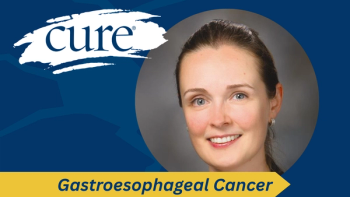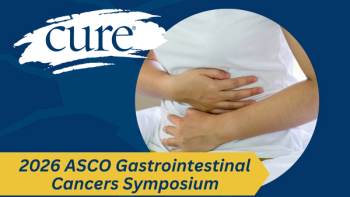
Newly Diagnosed? One Cancer Expert Offers Her Advice
The executive director of the Cancer Policy Institute at the Cancer Support Community offers some candid advice for individuals who may be facing a new cancer diagnosis.
Patients who are newly diagnosed with cancer should first stop and take a deep breath, advised one oncology expert.
Elizabeth Franklin serves as executive director of the Cancer Policy Institute at the Cancer Support Community (CSC), an organization whose mission is to “ensure that all people impacted by cancer are empowered by knowledge, strengthened by action and sustained by community.”
During the 2019 American Society of Clinical Oncology Annual Meeting in Chicago, she sat down with CURE® to offer tips for patients who don’t know where to begin after a cancer diagnosis.
“When facing a cancer diagnosis, nobody reacts the same. I know some people immediately go to the internet and start Googling, while some people don’t want to do that. I think you have to figure out what’s right for you,” she said.
Because every person is different in how they process information, especially a life-changing diagnosis such as cancer, Franklin advised that patients should be sure they’re comfortable with and truly understand what their doctor is telling them. This is where they may need outside help.
“Write down everything or take a recorder to record what they’re saying in the doctor’s office,” Franklin offered. “And if you can, bring someone with you. Because I don’t care who you are, how highly educated you are, when you’re told that you have cancer, your mind goes blank and you’re not hearing anymore.”
If note-taking or recording aren’t an option, it’s always helpful to have someone help advocate for you, Franklin continued. “Hopefully you have access to a patient or nurse navigator or social worker. The doctor can only spend a limited amount of time with you, but try and find an advocate within the health care system to connect to and say, look, I have more questions, can we spend a little bit more time talking about these?”
Ideally, Franklin said, it’s best to give yourself some time after a new diagnosis to allow yourself to adjust and determine what next steps to take. “Don’t rush into any decisions, and don’t feel bullied into any decisions. It needs to be the right decision for you.”
For most, the right decisions can only be made after determining what the person values most, according to Franklin. “Do you care about quality of life? Do you care about the most aggressive treatment? Do you care about spending time at home versus time in the hospital? What’s the cost of the treatment? Those are the types of questions that patients should think about,” she said.
But, as the saying goes, some individuals “don’t know what they don’t know,” and even coming up with these questions in the first place may be a daunting task. That’s where CSC can help, according to Franklin. With its
“These are questions that they may not think about prior, because, before you become a cancer patient, I guarantee most people have not thought about being a cancer patient or about what kinds of questions they should ask, so this program really helps to walk patients through it,” said Franklin.
Additionally, CSC’s help line is another resource for patients who are already in treatment. “We have our help line, which is open Monday through Friday, staffed by professionals like social workers, nurses, genetic counselors, who can answer questions and find resources,” Franklin explained. “If they’re close to one of our affiliates, they can actually go and visit the affiliate and meet and network with other cancer patients, too.”
One thing that helps all patients: connecting with others, Franklin stressed. “It’s incredibly important to have a community around you, because when you’re diagnosed, you feel alone,” she said. “So it’s important to find other people who are going through a similar experience, and that’s the whole reason the Cancer Support Community exists.”



